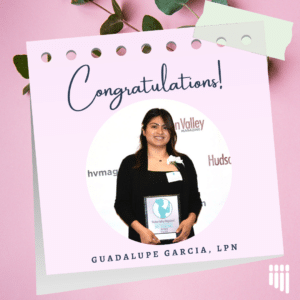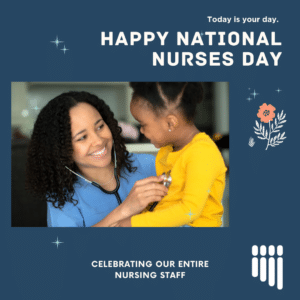Tips for a Smooth Transition Back to School
Dr. Alicia Pointer, Chief of Pediatrics at Cornerstone Family Healthcare, was a guest on WALL Radio Wednesday, September 16, 2020. During her interview, Dr. Pointer shared advice on getting kids back to school safely – whether they are learning from home, in a school building or a hybrid of both.
Please click the link below to hear Dr. Pointer’s entire interview or read on to learn more.
Thank you to WALL Radio for having Cornerstone Family Healthcare as a guest.
Q: How do we start school off on the right foot for kids?
Dr. Pointer: It’s a tough year. It’s so different than our normal, but it’s still important to work on that transition and develop some routine for children.
We can still do something special to acknowledge the start of the back to school this year – take the typical photo, buy a new pack of pencils, something really simple, put on their favorite back to school outfit. Make it special to them.
Can be tricky to keep kids on a routine when they are learning from home some days and in school some of the other days. Make sure they have some type of routine. Make sure that they get dressed in the morning (don’t spend the whole day in their pajamas), make sure they eat breakfast, brush their teeth, have a reasonable bed time. Parents shouldn’t make themselves crazy. You don’t have to outline every minute of their day, but keeping some kid of routine let kids feel more reassured.
Try to have some positive language around heading back to school. Kids are hearing so much negativity around this year’s school season, which is understandable. We can talk about the hard parts of this, but giving them something to look forward to is important too. Kids are stressed just like we are.
Q: How can we encourage kids to wear their face masks?
Dr. Pointer: A lot of kids have been home for the last 6 months and haven’t had to wear masks that much. We know wearing masks is so important to prevent infection. There are some ways to make it easier for kids.
Let kids choose their masks, if possible. There are so many fun fabrics and designs. That might make it a little more fun for the kids.
There are so many different kinds of masks. If kids feel uncomfortable in one mask there might be another option for them.
Try using simple, age-appropriate language similar to hand washing. For example, “Wearing a mask keeps you healthy.” It’s honest. We don’t want to scare the kids, but we want to tell them why it’s important that they wear their mask.
For kids that are not used to wearing a mask, try starting with short periods of the day and prolong that. If you start when they are having fun or distracted – they will be less likely to pull on it. For example, tell them they can watch one more TV show, but you have to wear your mask the whole time.
The best masks are at least 2-ply masks that cover both your nose and your mouth. It’s important to remind kids that it has to cover both to be effective.
Q: How important is it for kids to wash their hands?
Dr. Pointer: It’s very important. Washing hands is important, especially for kids after they’ve bene in public spaces, before they’re eating. They touch their faces a lot and put hands in their mouth. Remember, hand washing certainly helps protect against COVID, but it also helps protect against flu and other germs going around.
Q: Is it OK to send kids to school if they have the sniffles?
Dr. Pointer: It’s not OK this year. This year if kids have a runny nose or a cough, even without a fever, they need to stay home until they get tested for COVID and have negative results. I know this puts a huge burden on families that are already really burdened. I know it can be tempting for families to wait it out and see if it gets worst. But it’s important to know that COVID is most contagious the first couple days of symptoms. Keeping kids home is the best way to protect their classmates, their teachers and the high-risk people that might live with their classmates and teachers.
Q: How should parents handle screen time for their kids if they are learning from home?
Dr. Pointer: Prior to COVID I’ve always told families to limit the amount of screen time. The primary thing is parents need to be kind to themselves and give themselves a break. It’s a tough time. It’s a strange time. It won’t last forever. A little extra screen time now is OK – kids will come out OK through this.
There are a few tips to try to limit some of the effects of screen time. Even though they need to be online for school, for their eyesight alone, kids should be taking some screen breaks. Older kids may need to reminders. Some kids may want to plow through it and get their work done in a couple hours. Try setting a timer or remind them to step away from the computer for a little bit, take a walk, have a snack – but give your eyes a little bit of a rest. Kids that wear glasses and haven’t seen their eye doctor in a little while, should do that to make sure that their prescription is up to date, find out if they need to be wearing their glasses in front of the screen.
Families should think about what screens are being used for. Not all screens are created equal. You talked about school work. Kids use screens to connect to other people. Maybe talking to grandma or grandpa. Kids are using screen to get some indoor exercise by watching workout videos. All of those things are good reasons to use a screen.
If they are mostly using screens for entertainment that might be what you want to limit a little bit. Having some screen-free or text-free zones, like when we all sit down at the table for a meal, that definitely gives kids a little bit of a break.
We know that sleep is really important for kids and screens before bed and in the bedroom really interfere with kids sleep. Turn them off about an hour before bedtime. Think about charging things outside of the bedroom so it’s not a distraction. A lot of kids use the screen at nighttime and it keeps them up. Use then for what you need to use them for, but be aware of it and try to take some breaks now and then.
Q: Is it important for kids to spend time outdoors?
Dr. Pointer: It’s so important. When kids are in school you don’t realize that they have so many opportunities to get up and get moving. They have gym class, recess, even walking through the halls from class to class. It’s important to get outside or get some exercise. It’s good for kids’ physical health, but it’s also really good for their mental health.
Q: Should kids get the flu vaccine?
Dr. Pointer: Yes! Please get your flu vaccine. Flu is still out there. It can still be dangerous for kids. A lot of people don’t know this, but when you get one respiratory infection it increases your chances of getting another one on top of it. So if you have the flu, it can increase your chances of getting COVID. The flu and COVID at the same time could be very dangerous.
Important to get other vaccines that they would normally get of their childhood series. We have a lot of kids that aren’t in school, but they still need their routine vaccines that are really important to get. We sometimes forget that last year we were having a mini-measles epidemic in Orange County, so those vaccines are really important too even though we have this other priority going on.
Q: What else should parents be thinking about this school year?
Dr. Pointer: Kids mental health is also really important to think about right now. I think everyone is feeling a little more worried, maybe a little bit sad and stressed about all the changes that are happening. But if parents have any serious concerns about their kids’ mood, things like depression or anxiety, they should definitely talk to their pediatrician. We have an excellent child psychiatrist here at Cornerstone. If parents talk to their doctors, they can decide if that’s something that kids need to pursue.
Make sure parents are communicating with teachers. They can assess how kids are doing in the classroom. It’s hard to tell through a screen.
The most important thing is for parents to remember this is a really stressful time, but they are doing a fantastic job. Remember that you’re probably doing a much better job than you think you are!
There are so many ways to see us. We have phone visits, telehealth visits, in-person visits. We’re always happy to talk to you about any concerns you have.




